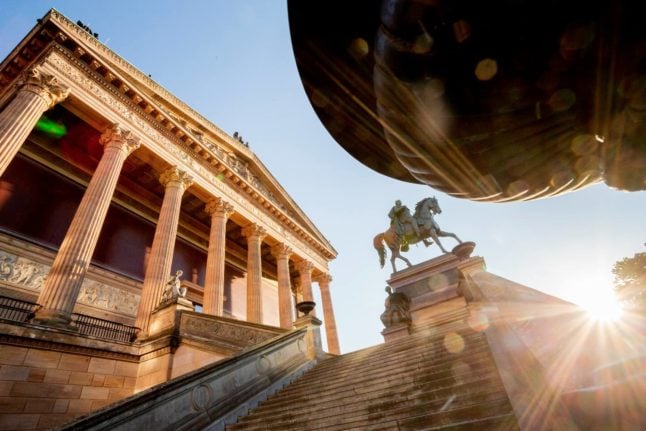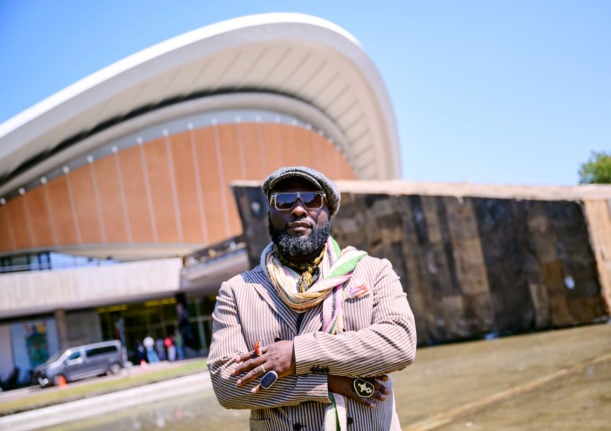Here are some events and ongoing activities to look out for in February.
Berlin Philharmonic returns to the 1920s, Saturday, February 13th 2021 at 6:45pm
Berliner Philharmoniker is streaming the 1920s First Symphony Opera, one of German composer Kurt Weill’s early performances.
As described by the orchestra, this piece’s music is “captivating and triumphant”. The music was composed in 1927 and its story takes place in ancient Greece.
Final Girls Film Festival, February 4th at 1pm to February 8th at 11:59pm
Final Girls Berlin Film Festival showcases horror cinema that’s directed, written, or produced by women and non-binary filmmakers.
The festival is committed to creating space for female voices and visions, whether monstrous, heroic or some messy combination of the two, in the horror genre.
Berliner Festspiele, Strong Pieces Stream, Until March
Berliner Festspiele is showing two of their top picks.
“The Misanthrope” is a Molière’s classic staged by Anne Lenk, and translated by Jürgen Gosch and Wolfgang Wiens. It’s been called a straightforward delight with an exceptional concentration of language and wit.
And “Man appears in the Holocene” is staged by Alexander Giesches after Max Frisch’s novella about mankind’s Sisyphus-struggle against their own doom.
König Gallerie, 'Dreaming of Alligator Head' by Claudia Comte, January 21st 2021- January 12th 2022
With her digital solo exhibition Dreaming of Alligator Head, Comte creates a scenario that is impossible in reality: She plants her underwater sculpture park in the König Gallerie app. The digital visitors inside experience a fascinating underwater world without having to go on a physical journey.
Comte also seeks to raise awareness of marine environments and ask how an artistic object can change the world. Check out the exhibition on the König Gallerie app.
Galerie Tanja Wagner, How to be human, until February 13th 2021
Celebrating 10 years of the opening of her contemporary art gallery, Tanja Wagner’s exhibition, How to Be Human showcases her personal favourite works of artists she has collaborated with.
It includes Grit Richter’s famous work, Das Letzte Wort, as well as other works that in Wagner’s opinion, seek to explore the question ’How to Be Human’.
Alte Nationalgalerie Online, until further notice
The Alte Nationalgalerie was set up as a “sanctuary for art and science”. The idea for a national gallery was realised after the donation of a collection of paintings by Caspar David Friedrich to the Prussian state.
Since Covid-19 has made it difficult to visit the otherwise very popular museum, the gallery has made its collection available online until further notice.
Naturkundemuseum Berlin, Beats and Bones Podcast and Livestream, Mondays at 7pm, until further notice
Berlin’s Naturkundemuseum is offering a podcast series where nature experts from the museum answer questions about the diversity of nature, evolution, the formation of the earth, climate change and insect death.
They explore questions such as “Who knows our earliest ancestors were 480 million-year-old jawless fish?” Or, ‘What is the Achilles heel of Tyrannosaurus rex’?
Catch new episodes every Monday on Instagram, along with a live stream through the museum with experts accompanying you through the collection and exhibition. The previous episodes are available on Spotify as well as Youtube.
Anne Frank Zentrum, All about Anne, until further notice
The Anne Frank Zentrum's exhibition “All about Anne” is normally presented at Hackescher Markt in Berlin-Mitte. Since lockdown, the exhibition has been made available online.
Its exhibition tells the story of Anne Frank's life and the time in which she lived. It also explains why her diary is so well-known today and shows that her thoughts are still relevant.



 Please whitelist us to continue reading.
Please whitelist us to continue reading.
Member comments